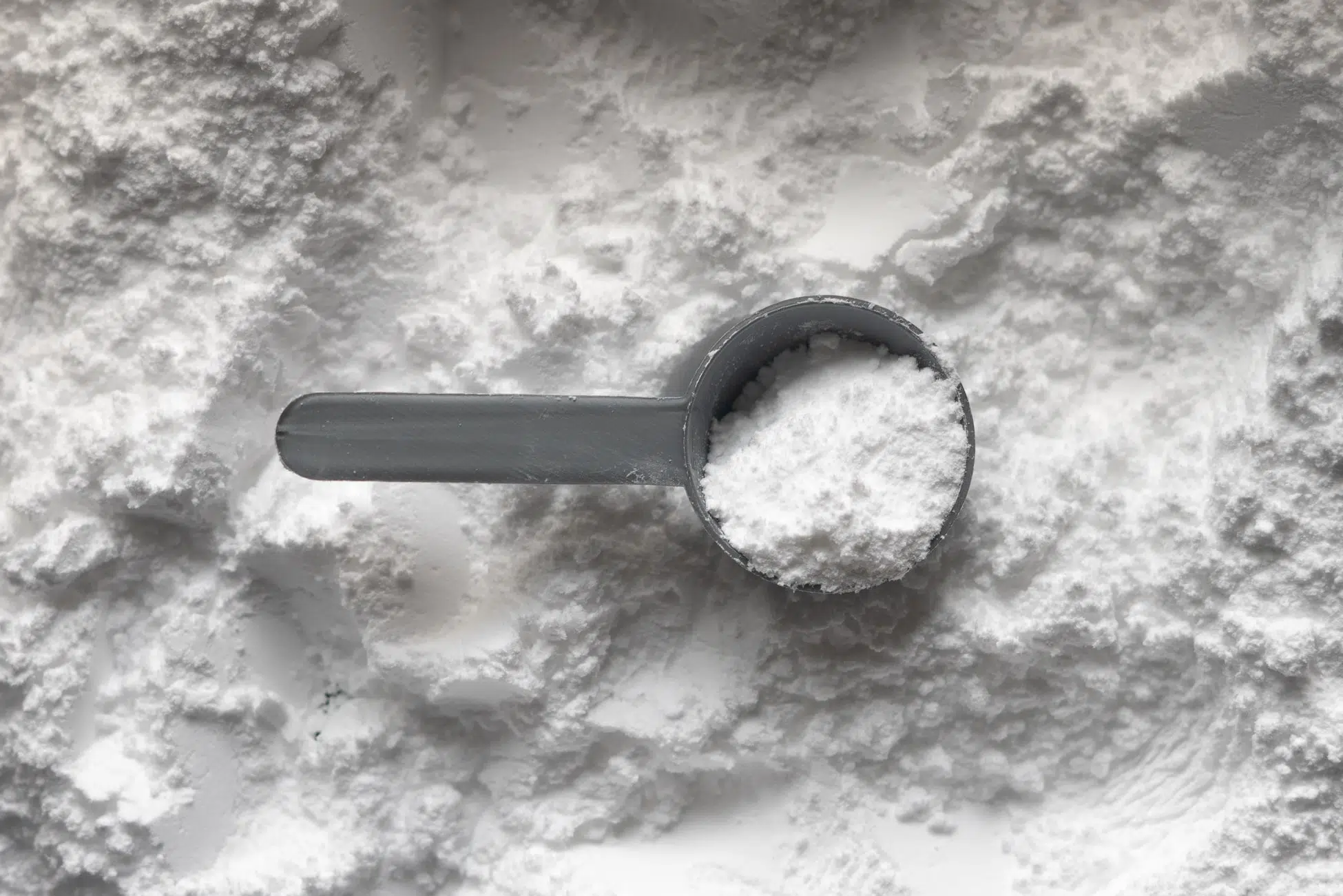
You can expect a 1-2% gain in body mass as the creatine draws water into your muscles. You may even appear larger.
Creatine monohydrate, the most studied sports supplement ever. We don’t know everything about it, but we know a hell of a lot. Certainly, the majority of gym-goers have at the very least heard of creatine.
My first introduction to creatine was in high school when a certain classmate appeared to have doubled in size over summer vacation. He told us all he had done over the summer was work out and take creatine (wink, wink).
Every guy went out and bought creatine that day, including me.
The other kids at school said that creatine helped you gain weight, while others claimed that it only filled your muscles with water. Some kids said it was dangerous for your kidneys and refused to even try it. Long story short, we all treated it like some kind of anabolic steroid and none of us knew what it did.
On a personal level, I thought it was the secret to gaining weight. My 120lb bony ass took a scoop before bed and expected to see Ronnie Coleman in the mirror the next morning.
What is it and what does it do?
As was mentioned earlier, creatine has been heavily studied and we have a pretty darn good understanding of it.
When we consume creatine, it will attach itself to a phosphate (now phosphocreatine) and it is then stored in our muscles. Among other things, our muscles use something called adenosine triphosphate (ATP) for energy. Tri means three- three phosphates. When our muscles do work, they take one of those phosphates away, turning triphosphate into diphosphate (ADP). When this happens, phosphocreatine swoops in to replace the used phosphate with its own, turning ADP back into ATP and we have our energy source back in a very little amount of time.
That’s the bare bones of how creatine works, but you’ve likely heard about water retention or something called a “loading phase”.
Most creatine supplement labels recommend a loading phase. This is typically 20-25g for 5-7 days. After loading, the user would then begin the maintenance phase which is 5g daily. Many studies have confirmed that a loading phase is beneficial but not necessary. A loading phase will help saturate your muscle with creatine in a shorter amount of time. Taking 5g daily will achieve the same level of saturation, but it will take longer.
Creatine does cause some water retention in most users. You can expect a 1-2% gain in body mass as the creatine draws water into your muscles. You may even appear larger. However, this effect only lasts a few weeks before turning to normal. This is simply your body adapting to an increase in phosphocreatine storage.
So will you gain weight?
Short-term, yes. Long-term, in a way, yes.
Everyone responds differently to creatine but most individuals will experience a 2-6 pound increase due to the aforementioned water retention. There are also low-responders creatine supplementation and studies have documented some non-responders, but these individuals are very few and you are unlikely to see anything other than the average 2-6 pound increase.
The water retention is temporary, but as long as you are supplementing your diet with 5g of creatine daily, you’ll likely see some respective gains.
With the increase in ATP production, you’ll be able to lift some more weight. Most studies have found that appropriate creatine supplementation will result in a few extra reps or a few extra pounds in your sets. This study took eighteen male powerlifters and split them into two groups- one placebo and the other was supplemented with creatine. The researchers found that the creatine supplemented group saw a greater increase in 3RM strength, higher repetitions, and an overall improvement in muscular strength.
A few reps doesn’t sound like much, but it adds up. At the very low and safe cost of creatine, why not take it and get that extra rep in?
The small benefit one gets from creatine will result in additional contractile tissue growth. It will help you build muscle. And if you build muscle, you gain weight.
Will the benefits go away if you stop taking creatine?
Studies have found that taking creatine will lower the body’s natural production of creatine, but those levels return to normal after an individual ceases to take it.
However, natural creatine levels are quite low, thus the beneficial effect of taking it as a supplement in the first place. If you quit, you’ll likely experience a small drop in performance in the gym- specifically in weight training. Since the weight you gained while on creatine (excluding the temporary water retention weight) was a biological adaptation built up over the long term, it will stay as long as you continue to resistance train. You shouldn’t notice any drop in body weight.
If you take creatine again after a hiatus, and especially if you decide to utilize a loading phase, you’ll regain the temporary water weight.
It’s not the magic “one trick to gain weight”.
But it’s highly recommended for athletes and anyone lifting weights. 5g a day isn’t much and creatine is so inexpensive, so you can start taking it now and consider it an investment in your journey since you’re essentially giving your muscles a boost to the tools they need to increase mass.
